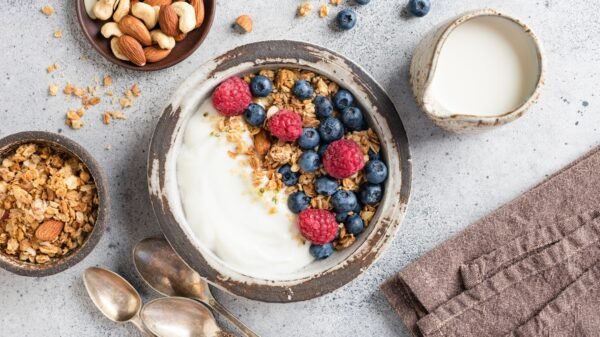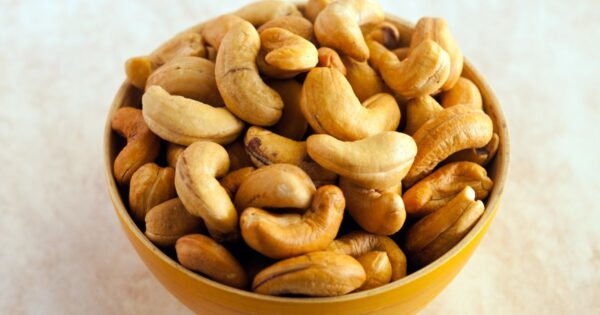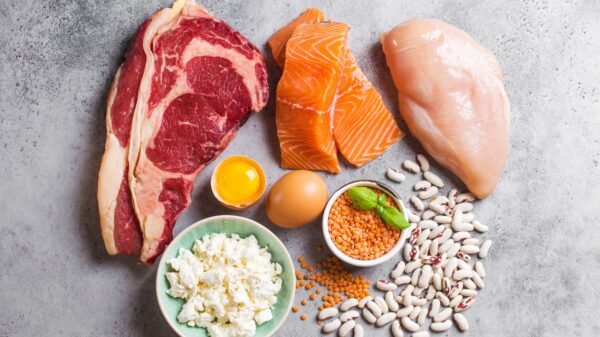
Protein Needs for Women: How Much is Enough?

Protein requirements for women will vary depending on age, fitness abilities and hormone function (i.e. pregnant, perimenopause, etc.) A rough guide based on the average woman is 0.75g of protein per kg of body weight. The benefits of protein are endless and include: contributing towards muscle growth and recovery from exercise, as well as supporting bone health and bone density. Here, Jess Hillard, Sports Nutritionist at Warrior®, reveals all about the protein needs for women and how much you really need…
- During pregnancy: the recommended daily allowance (RDA) of protein increases to 1.1g of protein per kg of body weight. This is usually around 80g for the average woman but again of course varies. For lactating mothers, this will be higher.
- For fitness enthusiasts: the average woman will need to consume between 100-170g of protein per day if exercising. However it is important to note this can vary depending on the type of exercise and the intensity of it. For example, a few strength training sessions per week won’t require such a high quantity of protein per day, however, if training for an Ironman it will be considerably higher.
- For peri-menopause/menopausal women: protein can aid normal hormone functioning which is particularly important for women going through the menopause. The amino acids which make up protein can contribute to normal hormone function and aid mood, sleep and reproductive functioning. It is also important to note that osteoporosis is much higher in women going through/after the menopause and as protein plays a key role in bone health, its important to consume sufficient amounts.
- For +55 women: protein needs will increase with age due to the natural loss of muscle mass. Those aged over 55 should be consume at least 1-1.2g of protein per kg of body weight.

Meeting your own protein requirements can be simple but often takes a few dietary tweaks. Below are a few ideas:
Start with a protein-rich breakfast: Including protein in your breakfast can help to regulate blood sugar levels and increase satiety which can be key for those looking to lose weight. Opt for:
- Eggs: x2 eggs provide 12g of protein. They are a complete protein so ideal for optimal muscle development. They are also so versatile; scrambled, boiled, poached, omelette.
- Greek Yoghurt: this is higher in protein than regular yoghurt and can be paired with fruits or nuts or low sugar granola. 100g of Greek yoghurt provides 10g of protein.

- Protein Bars: this is a good on-the-go option and perfect for those who often consume/crave chocolate bars. Protein bars such as Warrior CRUNCH bars provide the sweet tooth fix of a chocolate bar but with added protein and lower sugar (available to buy at www.teamwarrior.com).
- Snack on high protein: 30g of mixed nuts provides about 6g of protein. This also provides healthy fats too which are great for brain health, skin, nails and hormone production. Hummus and Veggies is another great snack as hummus is made from chickpeas which is a good source of protein. 2 tablespoons of hummus provides about 2g protein.

- Add a protein source into all meals: Poultry and Fish: Chicken, turkey, and fish (salmon or tuna) are excellent choices as lower in saturated fat than red meat and therefore calories. For vegetarians, ensure your diet is packed with beans, lentils, and chickpeas.













































